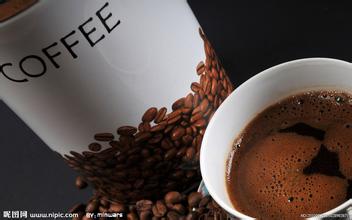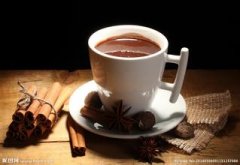Description of the characteristics and Flavor of Tanzania Coffee beans introduction to the producing areas of manor varieties
Description of the characteristics and Flavor of Tanzania Coffee beans introduction to the producing areas of manor varieties
Hemingway has been integrated with Tanzania and Mount Kilimanjaro since he embarked on his career as a writer in France. When Hemingway became famous, Tanzanian coffee became famous.
Europeans gave Tanzanian coffee the nickname "coffee gentleman", making it the pinnacle, and the "king of coffee" Blue Mountain, "coffee lady" Mocha and known as the "coffee swordsman".
Mount Kilimanjaro in Tanzania ("Kilima" means mountain, "Zaro" means radiant) is 5895 meters above sea level, connected to Mount Mt.Meru, and is the main coffee production base in Tanzania. Moshi and Alesha, located on the southern slope of Mount Meilu, also produce a large number of high-quality coffee beans. Eighty-five percent of Tanzanian coffee is grown on small farms.
When coffee produced in these regions is sold on the international market, the trademark is usually "Pride of Kilimanjaro (Pride of Kilimanjaro)", "Peaks of Kilimanjaro (Top of Kilimanjaro)", "Tanzania Moses" or "Tanzania Alesha".
After Jesuit introduced bean fruit to Europe in 1893, "Tanzania bean fruit" began to attract attention from all walks of life. For some reason, the yield of "bean fruit" in Tanzania is higher than that of ordinary coffee. In the international market, there are more products with the words "Tanzania beans and fruits" than those with the words "Kilimanjaro".
Generally speaking, Tanzanian coffee has a "crisp" characteristic, exudes delicate aroma, and contains wine and fruit aromas, endless flavor. Locally, it is similar to Kenyan coffee, but overall, it is closer to Sumatra Lloyd's coffee. After drinking Tanzanian coffee, you will feel a soft earthy smell around your mouth. Coffee gourmets often use words such as "wild" or "wild" to describe it. It can be said that pure Tanzanian coffee is "the most African coffee."

Important Notice :
前街咖啡 FrontStreet Coffee has moved to new addredd:
FrontStreet Coffee Address: 315,Donghua East Road,GuangZhou
Tel:020 38364473
- Prev

Introduction to the name and taste of coffee bean manor in Honduras
National Flower Carnation of Honduras (Carnation), carnation (scientific name: Dianthus caryophyllus) is carnation, also known as lion head carnation, musk carnation, carnation, Dutch carnation. It is a plant of Caryophyllaceae and Dianthus, distributed in temperate zone of Europe and Chinese mainland in Fujian, Hubei and other places.
- Next

Kenyan coffee beans, coffee beans
Kenyan coffee beans estate grade characteristics brand grading introduction delicious coffee, in addition to pay attention to the appropriate temperature, but also have the appropriate amount. Drinking coffee is not like drinking wine or juice. A full cup of coffee loses interest after watching it. Ordinary only to seven or eight full for the right amount, moderate amount of coffee will not only stimulate the taste, after drinking there will be no greasy feeling, but no aftertaste
Related
- Detailed explanation of Jadeite planting Land in Panamanian Jadeite Manor introduction to the grading system of Jadeite competitive bidding, Red bid, Green bid and Rose Summer
- Story of Coffee planting in Brenka region of Costa Rica Stonehenge Manor anaerobic heavy honey treatment of flavor mouth
- What's on the barrel of Blue Mountain Coffee beans?
- Can American coffee also pull flowers? How to use hot American style to pull out a good-looking pattern?
- Can you make a cold extract with coffee beans? What is the right proportion for cold-extracted coffee formula?
- Indonesian PWN Gold Mandrine Coffee Origin Features Flavor How to Chong? Mandolin coffee is American.
- A brief introduction to the flavor characteristics of Brazilian yellow bourbon coffee beans
- What is the effect of different water quality on the flavor of cold-extracted coffee? What kind of water is best for brewing coffee?
- Why do you think of Rose Summer whenever you mention Panamanian coffee?
- Introduction to the characteristics of authentic blue mountain coffee bean producing areas? What is the CIB Coffee Authority in Jamaica?

